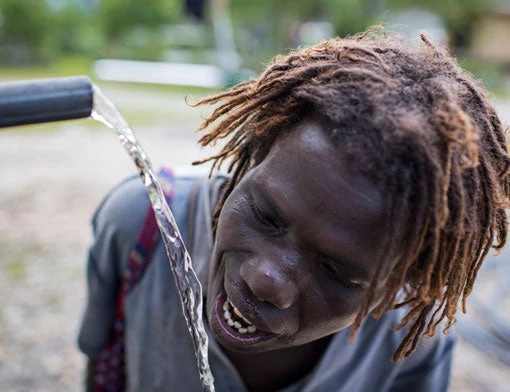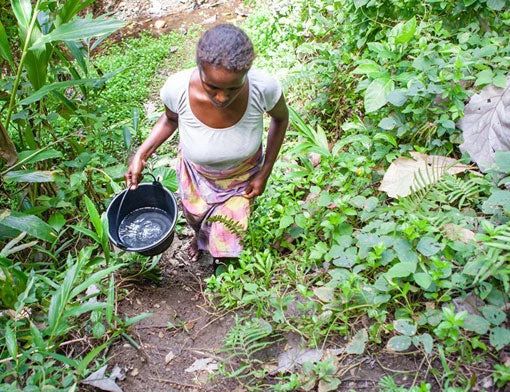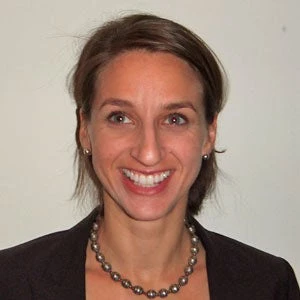Around the world, people are moving to cities in unprecedented numbers. The Pacific Islands are no different. In Fiji, Solomon Islands, Vanuatu, and Papua New Guinea (PNG), the urban growth rate is around 3% a year – or in real terms, around 64,000 people every year – who are making the move to the Pacific’s largest towns and cities each year in search of work and a better life.
As this ‘urbanisation’ increases, aging infrastructure and basic services are falling far short of needs. People arriving in cities are forced to settle in ad-hoc homes built on marginal lands without land titles. Known as ‘informal settlements’, these communities are often packed with homes hovering on stilts above cleared mangroves, stacked precariously up steep rocky hillsides, or squeezed onto public land along roads and power lines.
In Honiara and Port Moresby, the number of people living in settlements may soon outnumber formal residents. Yet the majority have limited or nonexistent water, sanitation and hygiene services – even in settlements that have existed for decades.
When residents of these settlements need to use the toilet, they must venture outside their homes – no matter the weather or time of day. They may have to trek long distances, making those most vulnerable – especially women and children – risk harassment or worse. Some reluctantly use the bushes or go in the ocean. When facilities are available, they are often pits that are shared among multiple families, and are often full or flooded. Untreated waste sits stagnant in these toilets, attracting pests and flies. Children may be afraid of them. Many elderly residents simply can’t access them.
Inadequate water services make matters even worse. Many women and children wait at community water pumps and carry heavy containers back to their homes daily. People try to make improvements with shallow wells or makeshift water storage systems, both susceptible to contamination in areas plagued by poor sanitation. Diseases such as cholera, diarrhea, and harmful parasites linger in these communities but can spread throughout the city quickly.
Settlements generally fall across jurisdictions, and land ownership is unclear. Utility providers rarely provide sanitation services in formal areas of cities – let alone in settlements. Water services, if they do exist in these settlements, are often shared by many families. And families, facing a constant risk of eviction, are not always willing or even allowed to invest in taps or tanks. And these options may not work in settlement conditions anyway.
In some instances in the Pacific, governments have (unsuccessfully) attempted to restrict services to discourage settlement growth in hazardous areas. In Honiara, the capital of the Solomon Islands, settlers displaced by massive flooding last year were relocated, only to be replaced by new settlers almost as soon as river waters receded.
Last year, the World Bank commissioned our team to research water and sanitation conditions in settlements, and to look for tangible ways to improve the situation. Our findings are part of a new report, Unsettled: water and sanitation urban settlement communities of the Pacific. We found massive gaps in water services across the Pacific, and that sanitation services are essentially unavailable in the settlements. Across the four countries we researched, there was not a single entity mandated or resourced to deliver any sanitation services to informal settlements.
There are, however, a few individuals, charities and organizations doing what they can under tough circumstances. In the Solomons, one staff member from the Honiara City Council created an ad-hoc but impressive dump site, in order to redirect truckloads of human waste away from rivers and coasts. The Water Authority of Fiji considered every settlement resident to be a potential water customer, and so they have developed creative ways to bring utility water services to their homes, despite the land tenure challenges.
Yet while these efforts are positive, sustainable city sanitation requires long-term, coordinated investment to ensure all families – no matter their circumstance – have safe, appropriate, and affordable access to water, and to ensure waste is safely removed from communities.
So what, if anything, can be done? The first step is acknowledging there is a problem; that a growing numbers of Pacific residents are living without basic sanitation services, and this will continue unless something is done. Then starts the hard work of finding smart ways to move forward.
Today is World Toilet Day – and the release of the Unsettled report – is the perfect opportunity to start the conversation about this rapidly-growing issue in the Pacific. While Unsettled certainly doesn’t provide all the answers, it is intended to help acknowledge the hundreds of thousands of people across the Pacific who are living with this issue every day. When Pacific decision-makers formally acknowledge that these settlements aren’t going anywhere and act accordingly, those living in settlements will be a step closer to one of the most basic of human rights: a safe, secure and sanitary place to go to the toilet.





Join the Conversation